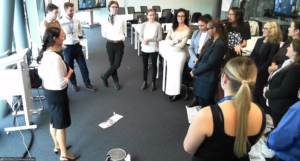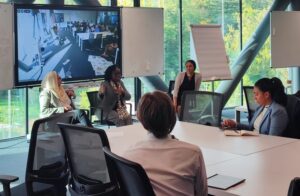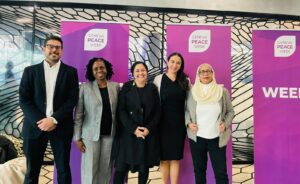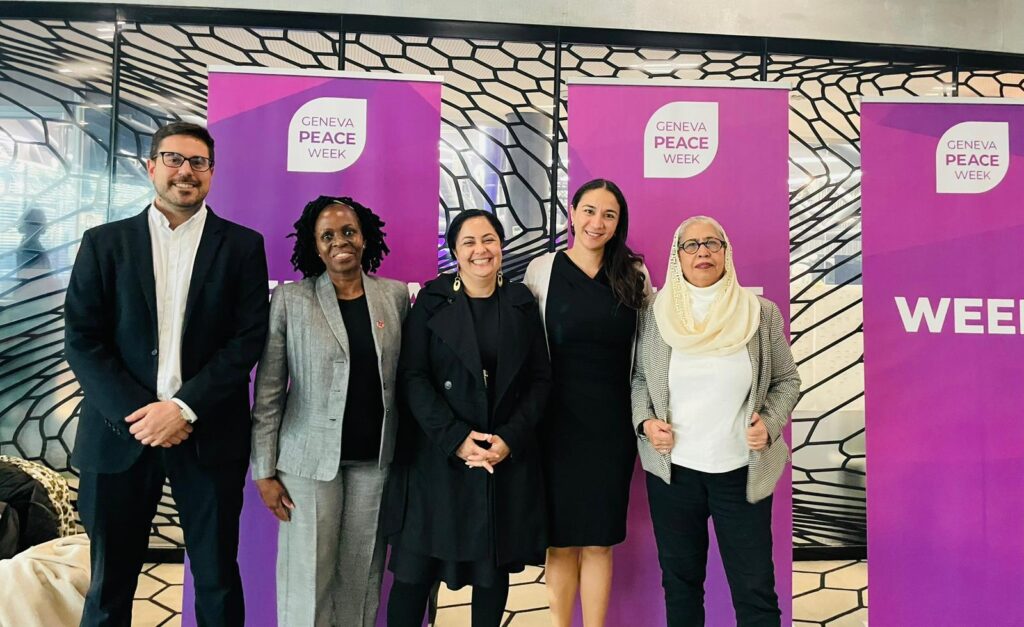During the 11th Geneva Peace Week, a hybrid workshop titled “Addressing Discrimination and Xenophobia in Schools through Ethics Education Transformative Pedagogies” brought together educators, policymakers, and peacebuilders. Organized by Arigatou International, the Kenya and Indonesia National Commissions for UNESCO, and UNESCO’s Multisectoral Regional Office for Eastern Africa, the session explored how ethics education can counteract discrimination and foster inclusive environments in schools.

Moderated by Mr. Francisco Vila, Head of Programs at Arigatou International, the workshop featured interactive exercises designed to confront ethical dilemmas related to privilege and exclusion. One activity, “Diminishing Islands,” engaged on-site participants in discussions about real-world scenarios involving social dynamics, encouraging them to explore non-violent and inclusive responses to discrimination.
Ms. Maria Lucia Uribe, Executive Director of Arigatou International—Geneva, opened the dialogue by underscoring ethics education’s transformative potential in addressing discrimination and xenophobia. She highlighted the importance of cultivating empathy and mutual respect among students to create inclusive learning environments.
Following the activity, Ms. Schéhérazade Feddal, Education Program Specialist at UNESCO’s Multisectoral Regional Office for Eastern Africa, explained how the transformative pedagogy behind ethics education equips children and youth with essential life skills. By placing students at the heart of the learning process, this approach fosters empathy and understanding across cultural and religious divides, helping young people to appreciate diversity and develop inclusive perspectives.

Ms. Mary Kangethe, Director of Education Programs at the Kenya National Commission for UNESCO, shared insights from the Ethics Education Fellowship, a program that has been implemented in six countries, including Kenya. She noted that the program, led by the Ministry of Education in Kenya, has heightened children’s awareness of social and cultural dynamics, encouraging them to be more attuned to issues of privilege and bias. Kangethe highlighted the interfaith and intercultural elements of the program, which have offered students new perspectives on diverse religions and cultures. Monitoring and evaluation results have shown that ethics education can positively impact academic performance by building students’ self-confidence and resilience.
Dr. Itje Chodidjah, Executive Chair of the Indonesian National Commission for UNESCO, spoke about the Fellowship’s integration within Indonesia’s educational framework. She explained how it aligns with the Pancasila Profile—Indonesia’s philosophical foundation—incorporated in the national curriculum. The Fellowship’s approach introduces students to interfaith understanding, promoting awareness and mutual respect across diverse beliefs. Teachers involved in the program also play a key role, modeling inclusive behavior and collaborating across schools.
The workshop concluded with an engaging Q&A session, where participants discussed the practical applications of ethics education for peacebuilding and inclusivity in schools. Geneva Peace Week 2024, held from October 14 to 18 at the Maison de la Paix and themed “What is Peace?”, featured over 70 events with 117 partner organizations. This week-long gathering offered a unique platform for global peacebuilders, fostering discussions on how initiatives like ethics education can play a vital role in shaping inclusive, peaceful societies.

We extend heartfelt thanks to Geneva Peace Week for providing a space for dialogue and learning, to our partners for their invaluable trust, to the facilitators for sharing their expertise, and to all participants for their enthusiastic engagement.
